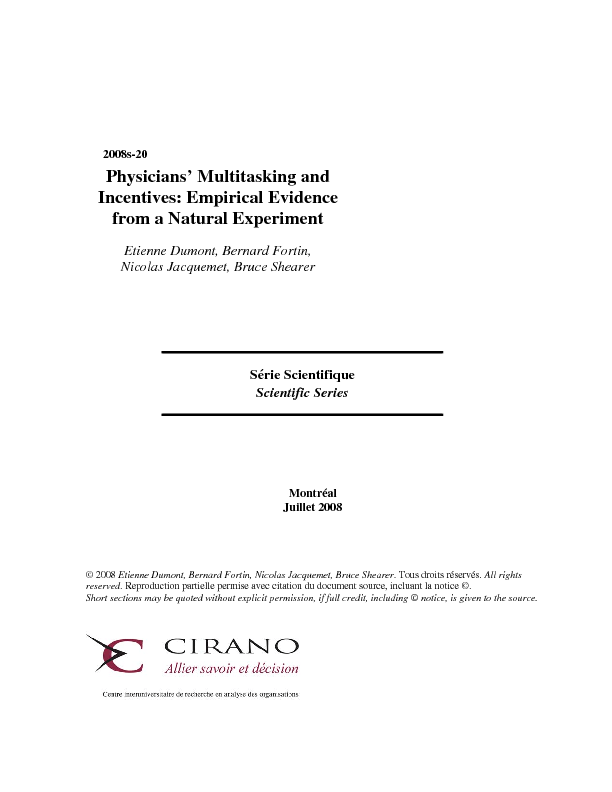Physicians' Multitasking and Incentives: Empirical Evidence from a Natural Experiment
We analyse how physicians respond to contractual changes and incentives within a multitasking environment. In 1999 the Quebec government (Canada) introduced an optional mixed compensation (MC) system, combining a fixed per diem with a partial (relative to the traditional fee-for-service system) fee for services provided. We combine panel survey and administrative data on Quebec physicians to evaluate the impact of this change in incentives on their practice choices. We highlight the differentiated impact of incentives on various dimensions of physician behaviour by considering a wide range of labour supply variables: time spent on seeing patients, time devoted to teaching, administrative tasks or research, as well as the volume of clinical services and average time per clinical service. Our results show that, on average, the reform induced physicians who changed from FFS to MC to reduce their volume of (billable) services by 6.15% and to reduce their hours of work spent on seeing patients by 2.57%. Their average time spent per service increased by 3.81%, suggesting a potential quality-quantity substitution. Also the reform induced these physicians to increase their time spent on teaching and administrative duties (tasks not remunerated under the fee-for-service system) by 7.9%.
[ - ]




